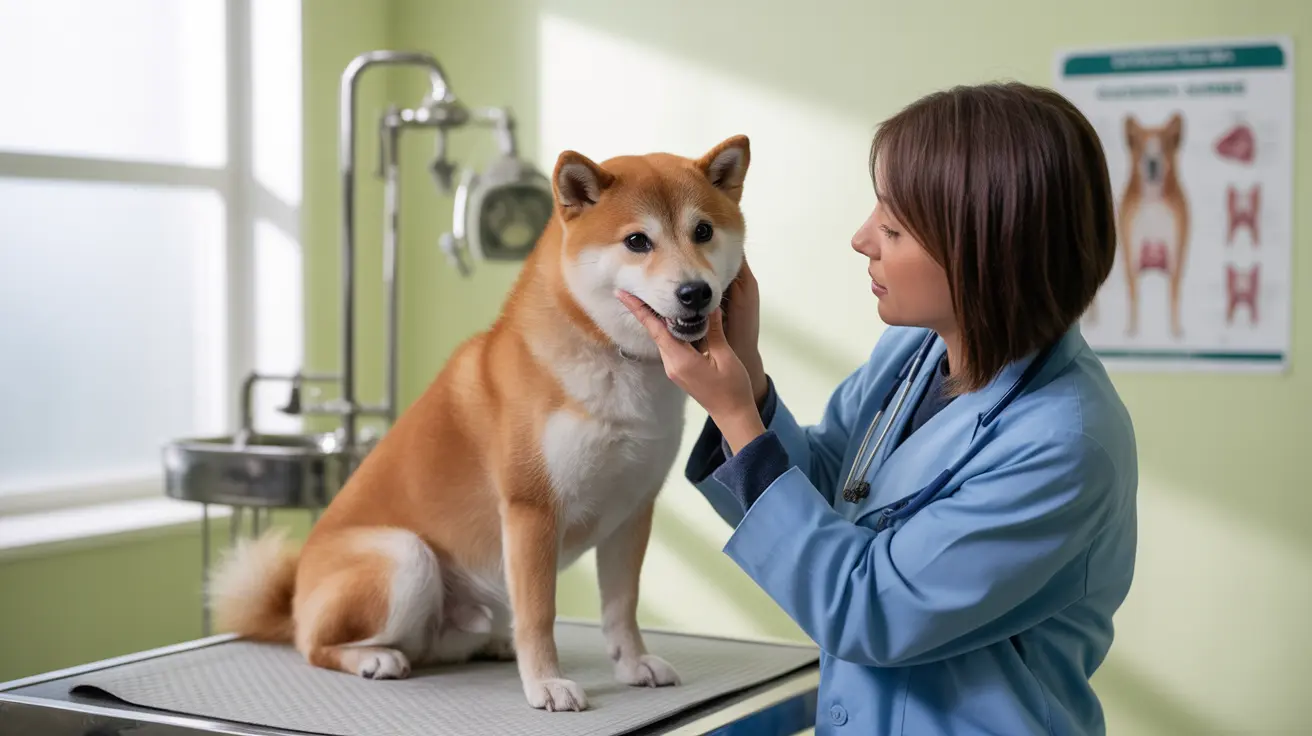If you've noticed your dog's breath smells like metal or iron, it's important not to ignore this unusual odor. While bad breath in dogs is common, a distinctly metallic smell can be a warning sign of various health issues, ranging from minor dental problems to serious systemic conditions.
Understanding the underlying causes of metallic-smelling breath and knowing when to seek veterinary care can make a crucial difference in your dog's health outcomes. Let's explore the common causes, warning signs, and steps you should take if you notice this concerning symptom.
Common Causes of Metallic Breath in Dogs
Oral Health Issues
The most common reason for metallic-smelling breath is bleeding in the mouth. This can occur due to:
- Periodontal disease
- Infected or abscessed teeth
- Gum injuries
- Oral tumors
- Recent dental procedures
Studies show that up to 80% of dogs over age three have some form of dental disease, making this a leading cause of breath-related concerns.
Systemic Health Conditions
More serious underlying health issues that can cause metallic breath include:
- Kidney disease or failure
- Liver problems
- Diabetes (in advanced stages)
- Bleeding disorders
Identifying the Source of Metallic Breath
Physical Examination
Check your dog's mouth for these signs:
- Red, swollen, or bleeding gums
- Loose or broken teeth
- Unusual growths or sores
- Dark brown tartar buildup
Additional Warning Signs
Watch for these accompanying symptoms:
- Increased thirst or urination
- Loss of appetite
- Lethargy
- Vomiting or diarrhea
- Yellow tinge to gums or eyes
When to See a Veterinarian
Seek immediate veterinary care if you notice:
- Sudden onset of metallic breath
- Active bleeding in the mouth
- Multiple symptoms occurring together
- Significant behavior changes
- Difficulty eating or drinking
Prevention and Home Care
Daily Dental Care
Maintain good oral hygiene through:
- Regular tooth brushing with dog-specific toothpaste
- Dental chews and toys designed for plaque reduction
- Professional dental cleanings as recommended by your vet
General Health Maintenance
Support overall health by:
- Providing a balanced diet
- Ensuring regular exercise
- Scheduling routine veterinary check-ups
- Monitoring for changes in breath odor or behavior
Frequently Asked Questions
Why does my dog's breath suddenly smell like metal or iron?
Sudden metallic breath often indicates bleeding in the mouth from dental disease, injuries, or oral tumors. However, it can also signal kidney disease, liver problems, or other serious health conditions. Any sudden change in breath odor warrants a veterinary examination.
What health issues can cause a metallic smell in my dog's breath?
Common causes include dental disease, oral injuries, kidney failure, liver disease, and diabetes. The metallic smell often comes from blood, but can also result from metabolic changes in the body due to organ dysfunction.
How can I tell if my dog's metallic breath is due to dental problems or something more serious like kidney disease?
Dental problems usually show visible signs like bleeding gums, tartar buildup, or loose teeth. Kidney disease typically comes with additional symptoms like increased thirst, changes in urination, decreased appetite, and lethargy. A veterinary examination is necessary for accurate diagnosis.
What should I do if my dog's breath smells metallic and I notice bleeding gums or mouth sores?
Schedule a veterinary appointment immediately. In the meantime, gently examine your dog's mouth if possible, note any other symptoms, and avoid hard foods or chew toys that might cause further injury.
Can anal gland problems cause a metallic odor in my dog's breath, and how can I manage this?
Yes, if dogs lick their anal area due to gland problems, the secretions can cause metallic-smelling breath. Management includes regular veterinary checks, maintaining a healthy weight, and ensuring proper anal gland expression when needed.
Conclusion
While metallic-smelling breath in dogs can have various causes, it should never be ignored. Early detection and treatment of underlying issues can prevent more serious health complications. Regular dental care, routine veterinary check-ups, and prompt attention to unusual symptoms are key to maintaining your dog's overall health and well-being.






